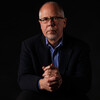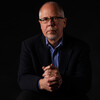Providence has often been a stumbling block for the human experience. Advent believers in the early 1840s saw God’s providence in Scripture preparing an escape from the trials of a wicked world.
But while the Great Disappointment swept many of them from anticipation to abject disillusionment, another contrasting view of Providence was gaining momentum within America. Just a few short months after the 1844 disappointment, journalist John L. O’Sullivan wrote of "our manifest destiny to overspread the continent allotted by Providence for the free development of our yearly multiplying millions.”
This was not an entirely new thought. The Puritans and others, who two centuries before had initially colonized America’s shores, felt that God had bequeathed to them a new land to conquer for His sake. Puritan leader John Winthrop’s famous 1630 sermon, “City Upon a Hill,” called for building a virtuous society that would serve as an example to the rest of the world. In 1776, Thomas Paine’s “Common Sense” pamphlet concurred: “We have it in our power to begin the world over again. A situation, similar to the present, hath not happened since the days of Noah until now. The birthday of a new world is at hand.”
But the concept of Manifest Destiny characterized a naive understanding of Providence that we still struggle with in America — in everyday life, from the silly to the serious. It initially gave tacit permission for colonists to bulldoze Native America under the Christian guise of evangelizing the heathen. It provided a rationale for early leaders to sublimate liberty of conscience to the overwhelming good of the majority. Today we see that same spirit in calls for theocratic reform in America. How does one differentiate a thoughtful Providence from a fickle fate? Do we use Providence to confirm what we really wanted in the first place?
I sometimes hear heartwarming testimonials that refer to lifesaving experiences as God’s Providence: “If I hadn’t been interrupted, I would have been right in the middle of that accident … . God was really looking out for me.” The clear-eyed among us wonder why God apparently looks out for some and not for others. In my understanding of Scripture, guardian angels do not fall asleep on the job, martyrs of faith do not languish in their graves from some arbitrary lapse of Providence. We're not trapped in a cosmic game of “Father, May I.” Our heavenly Father does not flip a coin to see who steps forward and who steps back.
It seems to me that the very best evidence of Providence at work comes when the headlong rush of human endeavor is interrupted. Paul and Silas in prison, Joseph wrongly accused, David in the wilderness — all had abundant opportunities for despair in the midst of crises. But amazingly divine results came from each difficult experience.
Life’s hiccups are not the end. “Spiritually, we’re trees,” says author Mark Buchanan. “We grow seasonally, too — spiritually speaking — and each season of flourishing is marked by another death, another dormancy, and then another resurrection” (Ubiquity).
Perhaps Paul's own decision to "die daily" to selfish ambition is the best avenue for Providence to work on our behalf.










